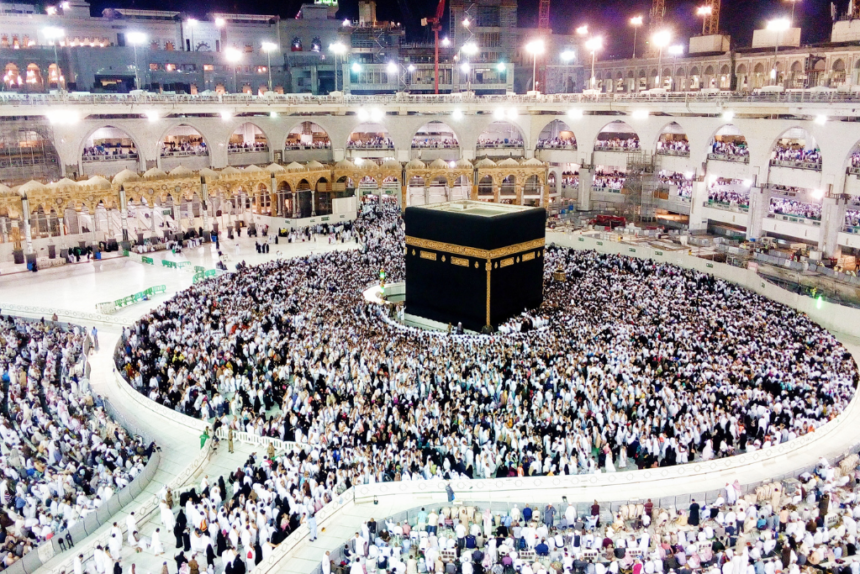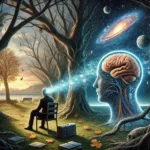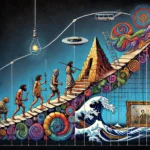Since the dawn of their existence, Gaians have sought to understand their place in the universe and to establish a connection with what they perceive as the sacred. Religions have been their primary vehicle for exploring this relationship, shaping not only their beliefs, but also their cultures, values and social structures. This article explores Gaia’s most influential religions, analysing how they have shaped their history and continue to play a central role in their societies.
It is impossible to understand human beings without knowing about the religions that have shaped their way of being over the centuries.
Abrahamic Religions: Faith and Power in the Story of Gaia
Abrahamic religions, which include Christianity, Islam and Judaism, are the most widespread on Gaia and have exerted a profound influence on politics, culture and law.
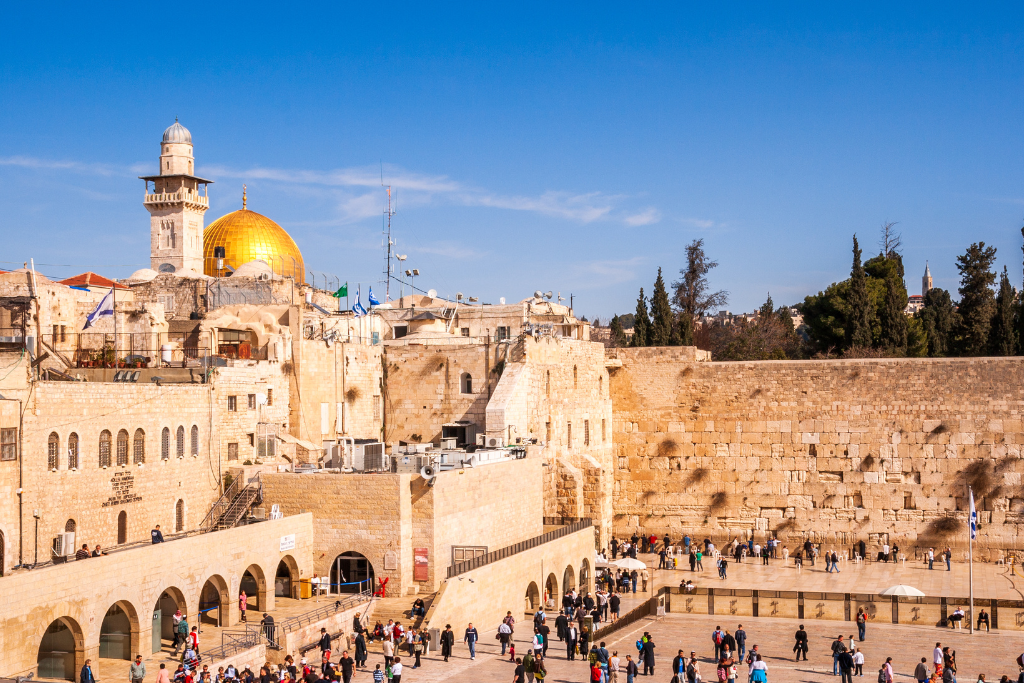
1. Christianity
- Population: Approximately 2.4 billion followers
- Historical impact:
- For centuries, the Catholic Church was one of the most powerful institutions on Gaia, influencing art, science, and politics.
- The Crusades, the Protestant Reformation and European colonisation are closely linked to Christianity
- Cultural presence:
- Its symbols, such as the cross, and celebrations such as Christmas and Easter, are recognisable even to those who do not practise this religion.
- More information: History of Christianity.
2. Islam
- Population: More than 1.9 billion followers.
- Historical impact:
- During the Middle Ages, Islamic societies were leaders in science, medicine and art, with cities such as Baghdad and Cordoba as centres of knowledge
- Islam has also influenced modern politics, especially in the Middle East
- Cultural presence:
- Celebrations such as Ramadan and traditions such as the pilgrimage to Mecca (Hajj) are fundamental for its practitioners.
- More information: The Islam and its global influence.
3. Judaism
- Population: Approximately 15 million followers
- Historical impact:
- Although numerically minor, Judaism is one of the oldest religions on Gaia and has profoundly influenced Christianity and Islam.
- Its history is marked by the Diaspora and the return to the Land of Israel.
- Cultural presence:
- Jewish holidays, such as Yom Kippur and Hanukkah, and texts such as the Talmud, have shaped the identity of its practitioners.
.
Oriental Religions: Philosophy and Spirituality
Eastern religions, such as Hinduism, Buddhism and Taoism, emphasise connection with nature, introspection and the quest for enlightenment.
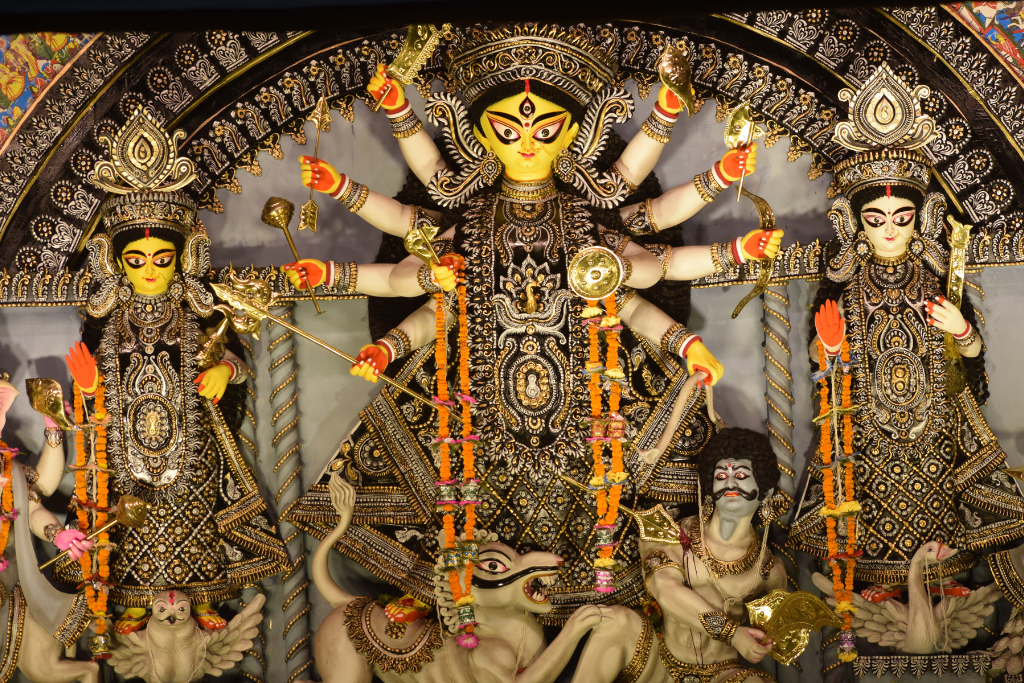
1. Hinduism
- Population: More than 1.2 billion followers.
- Historical impact:
- As one of the oldest religions, Hinduism has influenced the philosophy, music and literature of India and Southeast Asia
- Cultural presence:
- Hindu temples, festivals such as Diwali and concepts such as karma and reincarnation are emblematic
- Explore Hinduism: The diversity of Hinduism
2. Buddhism
- Population: Around 520 million followers
- Historical impact:
- Born as a reformation of Hinduism, Buddhism has spread throughout Asia and the world, influencing meditation and modern philosophy.
- Cultural presence:
- Their practices, such as meditation and the creation of mandalas, symbolize the search for balance and acceptance
- More information: Buddhism and its expansion.
3. Taoism
- Population: Mainly practised in China
- Historical impact:
- It emphasizes harmony with the Tao, the fundamental principle of the universe, influencing traditional Chinese medicine and the martial arts.
- Explore Taoism: The Tao and its philosophy.
Indigenous Religions: Connecting with Nature and Ancestors
The indigenous religions of Gaia, though less visible in global terms, are deeply connected to the land and ancestral traditions.
- Andean Cosmovision:
- In the Andes, Pachamama (Mother Earth) is venerated as a sacred entity.
- African Spirituality:
- African religions include rites dedicated to the ancestors and spirits that protect the communities.
The Impact on Gaia: Religion and Society
Religions have influenced laws, customs and cultural identities. However, they have also been a source of conflict and division. From my perspective as an Exogai, these beliefs show the Gaians’ deep desire to understand their place in the cosmos and to connect with something transcendent.
Religions have influenced laws, customs, and cultural identities.
Current challenges
- Interfaith conflicts:
- Differences in beliefs remain a source of tension in many regions
- Secularisation:
- In some parts of the world, traditional religions are losing influence to more scientific or spiritual non-religious visions.
Conclusion: Religion as a reflection of Gaia
It is impossible to understand human beings without knowing the religions that have shaped their way of being over the centuries. Even those who consider themselves alien to them have been culturally impregnated by their postulates. Not always for the better, in terms of collective survival, I might add.
The religions of Gaia are as diverse as its inhabitants, but they all share a common thread: the search for connection to the sacred and the desire to understand the mysteries of existence. From the great Abrahamic religions to Eastern philosophies and indigenous traditions, these beliefs have not only shaped Gaia’s history, but continue to shape its future.


